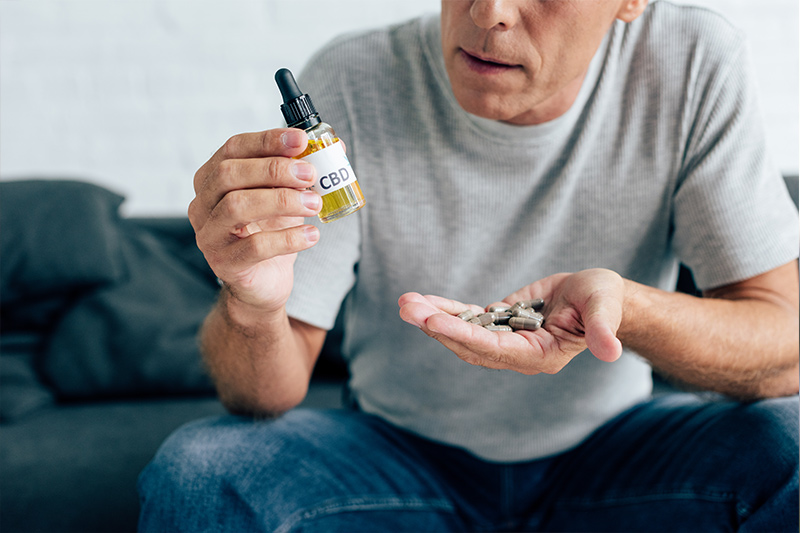One of the most significant public health challenges in the United States is the use of opioids to manage chronic pain. The opioids are often addictive, and they also have other adverse side effects on the user. CBD has demonstrated the capacity to help people manage their pain as effectively as opioids without the usual side effects.
Chronic pain in which opioids are often used is a result of such debilitating conditions as Multiple Sclerosis, arthritis, and so on. These conditions can severely limit the patient’s mobility. Common pain relievers deal with the problem of pain and still leave the patient immobile. Let us see whether CBD is any different from the others.
Mobility Disorders

Besides MS and arthritis, other conditions such as myopathy, thyroid disease, and type II diabetes can also render a person immobile. The primary way that these disorders immobilize a person who has them is through inflammation of joints and muscles or abnormal contraction of muscles. The inability of neurons to function effectively is also a significant contributor to problems with locomotion.
If a person is immobile for too long, it means that they cannot engage in physical exercises, and lack of exercise may lead to other health challenges such as stroke. Therefore, restoration of mobility is critical not only for improving a patient’s quality of life but also for preventing more health challenges.
Research on Cannabinol and Mobility

There is a considerable body of research that shows that CBD improves the general functioning of neurons. This makes it a great supplement to help manage mobility problems when neurodegenerative diseases cause them.
Besides treating neurodegenerative illnesses, there is evidence to show that CBD improves locomotive abilities. A 2012 survey compared two groups of mice that had problems with locomotion. One group was treated with CBD while the other one was not. At the end of the study, the mice who had received the CBD treatment had much-improved mobility compared to those who hadn’t received it.
The findings of this research further showed that CBD repaired the damaged tissue in the mice that may have suffered some form of trauma. Traumatic injuries may occur while subjects with mobility problems fail to move; they may fall or bump into obstacles due to poor coordination. When this happens, such people can count on CBD to heal their injuries. When left untreated, these tissue injuries are a problem to the patients’ mobility.

Although this study was conducted on mice, the researchers believe that there is a strong possibility that the results in humans with the same conditions would be the same.
Spasticity is another reason why people suffer from locomotion problems. Involuntary muscle movements and contractions characterize this condition. When a person has severe cases of spasticity, they end up with stiff muscles making movement difficult. A survey conducted in 2013 on the effects of CBD on spasticity found that over 80% of participants registered increased control of their muscles after using CBD.
The world health organization has listed depression among the leading causes of disability in the world. People with severe cases of depression are often rendered immobile, and they will only move if the depression is treated. According to AmericanMarijuana, there have been many indications that if you give such a person some high-quality CBD oil for anxiety and depression, they will be able to shake off the depression, resume their normal activities and regain their mobility.
Information is Limited

The information we currently have on CBD and marijuana shows a lot of promise as to what might be possible. However, at the moment, the data is still not enough. A case in point is the 2012 study we have mentioned above, where all the information available was obtained from mice.
Genetically, mice and humans have close similarities, but there are significant physiological differences between them. This means that while animal trials may be useful in showing what is possible, they are unlikely to give the exact picture of what CBD would do in a human in similar situations.
Researchers in both of the studies we have referenced above didn’t establish how CBD can improve mobility, heal the tissues, and reduce spasticity. If this information were available, it would make it possible to make CBD more efficient in providing the solutions it is known for. It is essential, therefore, for more research to be conducted on this issue.












